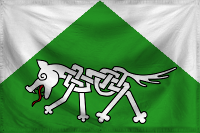
Advertisement
![]() by Victorious Decepticons » Sat Mar 10, 2018 10:40 pm
by Victorious Decepticons » Sat Mar 10, 2018 10:40 pm
Newaswa wrote:What is the greatest threat to your nation?Vallermoore wrote:The Victorious Decepticons.Bluquse wrote:Imperialist, aggressive, and genociding aliens or interdimensional beings that would most likely slaughter or enslave us
rather than meet up to have a talk. :(TurtleShroom wrote:Also, like any sane, civilized nation, we always consider the Victorious Decepticons a clear, present, and obvious threat we must respect, honor, and leave alone in all circumstances. Always fear the Victorious Decepticons.
The Huskar Social Union wrote: ... massive empires of genocidal machines.

![]() by Magical Equestria » Sat Mar 10, 2018 10:45 pm
by Magical Equestria » Sat Mar 10, 2018 10:45 pm

![]() by Midand » Sat Mar 10, 2018 11:30 pm
by Midand » Sat Mar 10, 2018 11:30 pm

![]() by Constitutional Technocracy of Minecraft » Sun Mar 11, 2018 1:30 am
by Constitutional Technocracy of Minecraft » Sun Mar 11, 2018 1:30 am

![]() by Tierra Prime » Tue Mar 13, 2018 1:37 pm
by Tierra Prime » Tue Mar 13, 2018 1:37 pm

![]() by Eahland » Tue Mar 13, 2018 3:00 pm
by Eahland » Tue Mar 13, 2018 3:00 pm

![]() by Hamidiye » Tue Mar 13, 2018 5:34 pm
by Hamidiye » Tue Mar 13, 2018 5:34 pm

![]() by Lonbonia » Tue Mar 13, 2018 7:41 pm
by Lonbonia » Tue Mar 13, 2018 7:41 pm

![]() by Edreland » Tue Mar 13, 2018 7:49 pm
by Edreland » Tue Mar 13, 2018 7:49 pm

![]() by Lethen Empire » Tue Mar 13, 2018 10:03 pm
by Lethen Empire » Tue Mar 13, 2018 10:03 pm
Lethen INA: Victory in Tel Aviv! Jerusalem within reach! Pro-Crusader assault on Isratine going very well | Raaagh! The Viking Age: Lethen sailors confiscate capital from the con-artists leading Japan in a nostalgic callback to our medieval forefathers

![]() by Nouvelle Navar » Wed Mar 14, 2018 6:21 am
by Nouvelle Navar » Wed Mar 14, 2018 6:21 am

![]() by Luziyca » Wed Mar 14, 2018 7:54 am
by Luziyca » Wed Mar 14, 2018 7:54 am

![]() by Ktathria » Mon Mar 19, 2018 3:30 pm
by Ktathria » Mon Mar 19, 2018 3:30 pm

![]() by Appalachia » Mon Mar 19, 2018 10:22 pm
by Appalachia » Mon Mar 19, 2018 10:22 pm

![]() by Soyouso » Tue Mar 20, 2018 5:46 am
by Soyouso » Tue Mar 20, 2018 5:46 am

![]() by Kaiserholt » Wed Mar 21, 2018 3:24 am
by Kaiserholt » Wed Mar 21, 2018 3:24 am


![]() by Azmara » Wed Mar 21, 2018 10:37 am
by Azmara » Wed Mar 21, 2018 10:37 am

![]() by Valrifell » Wed Mar 21, 2018 11:21 am
by Valrifell » Wed Mar 21, 2018 11:21 am

![]() by Die PreuBen Kaiserreich » Wed Mar 21, 2018 1:18 pm
by Die PreuBen Kaiserreich » Wed Mar 21, 2018 1:18 pm
Preußen✙Nachrichten:- ✙ Königliches Familien-Update ✙ : ✙ Kaiser Hans III returns from the PRC, touches down in Koenigsberg ✙
- Fußball-Ergebnisse: BBNM moves on to international stadium
- Weltnachrichten: n/a

![]() by Cartoonia » Fri Jul 06, 2018 3:36 pm
by Cartoonia » Fri Jul 06, 2018 3:36 pm
Cartoonian-Dillydale Stock Exchange…...JWC -10.0%........CIS +1.1%......CEP +2.1%......SSA -6.1%......POC -5.1%......WDC -1.2%......ABC +2.4%......RMC -1.2%......MRE +1.7%......SSC +3.1%......FSC +2.0%......KTC -0.5%......SBC -4.2%......KKF -5.3%
![]() by Marcianus » Fri Jul 06, 2018 5:45 pm
by Marcianus » Fri Jul 06, 2018 5:45 pm

![]() by United Clans of the Lake Territories » Sat Jul 07, 2018 4:16 am
by United Clans of the Lake Territories » Sat Jul 07, 2018 4:16 am

![]() by Jeoguk » Sat Jul 07, 2018 6:02 am
by Jeoguk » Sat Jul 07, 2018 6:02 am

![]() by New Transeurasia » Sat Jul 07, 2018 12:32 pm
by New Transeurasia » Sat Jul 07, 2018 12:32 pm
 .
.ENN 欧亜囯家通訊社 Eurasian National News: S7 Airlines flight 661 makes emergency landing in Miiriney, RU after failed hijacking | CTVN 长春広播电視集団 Chángchūn Television Network: President Kuzma makes speech on plans for her 2nd term after re-election

![]() by Purpelia » Sat Jul 07, 2018 2:06 pm
by Purpelia » Sat Jul 07, 2018 2:06 pm
Advertisement
Return to Factbooks and National Information
Users browsing this forum: Google [Bot], Tramontanum
Advertisement